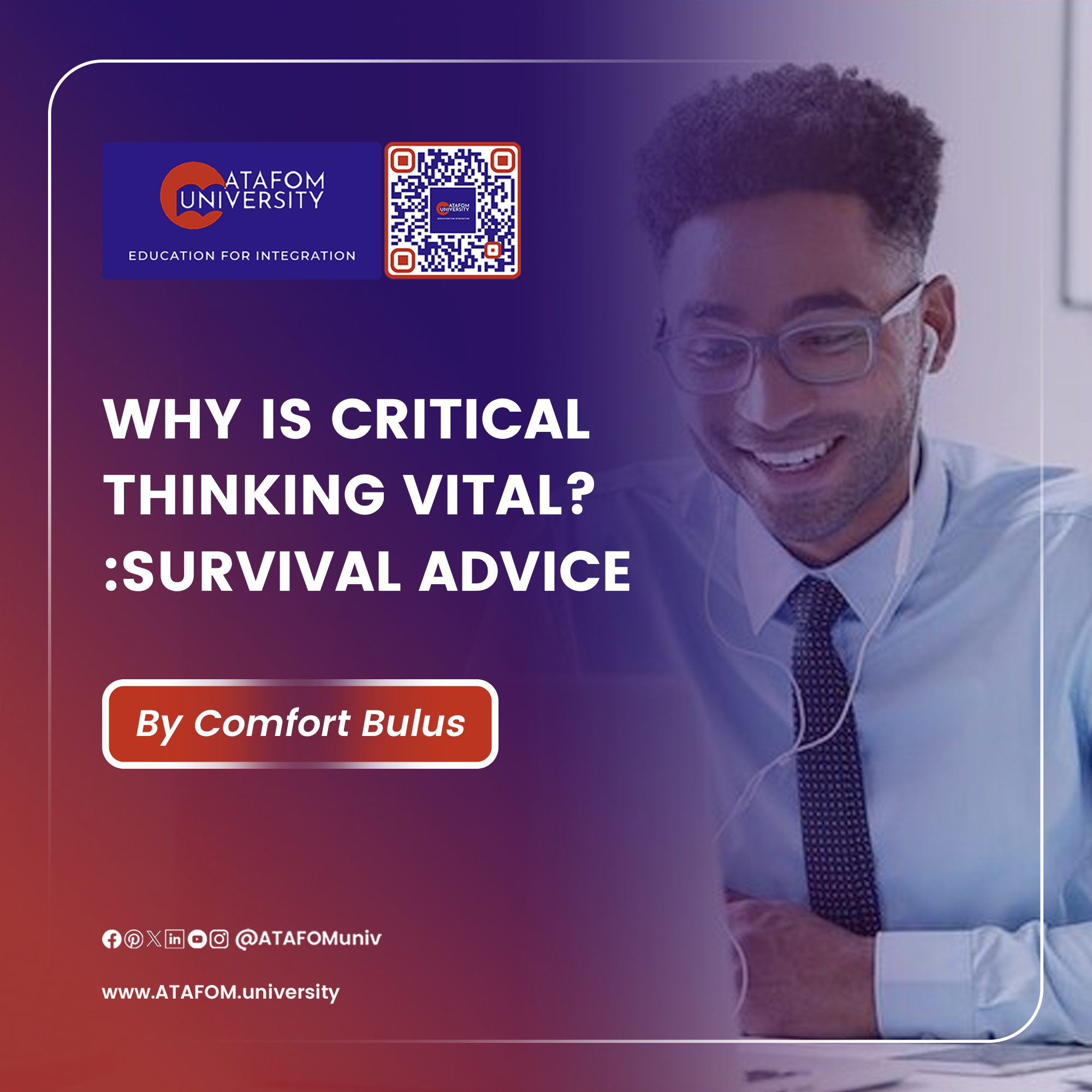What makes critical thinking crucial? Your level of happiness is influenced by the choices you make. And you’ll want to make deliberate decisions if you want to make sure that you live your greatest, most prosperous, and happiest life possible. Critical thinking, which is a straightforward process, can help with it. Here’s how to develop your ability to think critically so that you can make judgements you won’t regret.
Analysing information and drawing conclusions is the process of critical thinking, which is simply thinking about thinking. It is thought that Socrates’ teachings, as preserved by Plato, contain the first known definition. Modern definitions place more emphasis on reasonable, introspective thinking, choosing what to believe or do, and selecting what is true and what to do as a result of the definition’s evolution over time. Philosophers and psychologists have the best understanding of it.
Many factors make critical thinking important, including its universality, economic relevance, and enhancement of communication and presentation skills. Any profession can benefit from this type of domain-general problem-solving ability, which is crucial in rapidly expanding economies. Breaking down texts, improving understanding, and encouraging organised and clear thinking are all possible with the aid of critical thinking. To succeed in any subject, critical thinking is crucial. Critical thinking fosters innovation, enables problem-solving and the generation of fresh ideas, and is essential for self-reflection. It enables us to successfully assess ourselves and defend our beliefs. Democracy and scientific truths both depend on critical thinking since theories must be backed up by knowledge. Citizens must form opinions about what is right and wrong through critical thinking for a society to function efficiently.
Critical thinking is crucial for professional success in various professions, including science, law, medicine, and finance. Critical thinking is a valuable ability in the workforce, according to the World Economic Forum, since it aids in information analysis, creative issue-solving, systematic planning, and problem-solving with novel solutions. Better judgement is also aided by it, as critical thinkers deal with difficulties subconsciously to come up with the best solutions. People who engage in autonomous thought can better follow their intuition and make wiser decisions in life.
Happiness, stronger interpersonal ties, curiosity, creativity, problem-solving abilities, and independence can all result from critical thinking. It supports people in understanding who they are, avoiding harmful beliefs, and concentrating on their positive traits. Additionally, critical thinking aids in the development of educated viewpoints, improving citizens. It encourages curiosity and fosters innovation, enhancing their ability to perform their professions and find solutions to the world’s most pressing issues. Similar to Albert Einstein, who thought that addressing issues requires persistence more than intelligence, critical thinkers are patient and determined.
The mental exercise of critical thinking fosters the growth of rational reasoning, decision-making, and open-mindedness. Additionally, it fosters independence by empowering people to think for themselves and generate their own beliefs. Since education is a lifetime process rather than merely a means of preparing for the future, it is essential for success in life. In general, critical thinking is a lifelong talent that can be quite beneficial in a variety of areas.
If you want to develop your critical thinking skills, you should clarify your question, obtain trustworthy data, formulate thoughtful inquiries, examine both immediate and long-term effects, and consider all possible viewpoints. Use reliable sources and stay away from biases. To find a solution, ask the correct questions, think about both immediate and long-term repercussions, and use creative thinking.
The ability to think critically about one’s learning and ideas is an important talent that is promoted in schools. When teachers ask questions and students participate in group discussions, they have the chance to develop their critical thinking abilities. Critical thinker can evaluate their opinions objectively and, engage in self-reflection, comprehend the relationships between concepts, build arguments based on facts, and spot faults in thinking.
Goal-setting and accomplishing are steps in the methodical process of critical thinking. It enables foresight and the prediction of solutions from multiple angles. Critical thinking will continue to be important in the face of ongoing change and shifting success standards, just like it will in the future of employment. Critical thinking can considerably enhance a person’s life, both professionally and personally. It is not just significant, but also an essential cognitive skill. The World Economic Forum has it as the second most important talent for 2020. Critical thinking exercises regularly can greatly enhance one’s life.
You will learn to think independently at ATAFOM University International. We provide you with a solid framework for a successful career. It’s not just a future; it’s your future. So let’s work together to create your future at ATAFOM University International.


